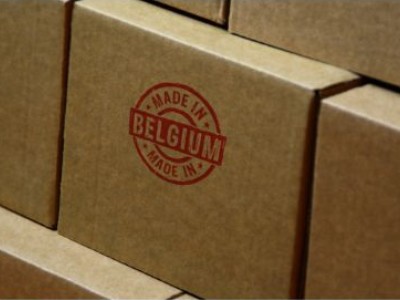Cost vs. Value:
Why paying (sometimes) a little more for products sold by Belgian retailers is worth it
Thursday 22 august 0024
In an economic context where every euro spent is carefully analyzed, it can be tempting to look for the lowest prices. However, when it comes to products from Belgian retailers, a slightly higher cost can actually represent a much more profitable investment, both economically and socially. This article explores why, in some cases, paying a little more to support local retailers in Belgium is really worth it.
Comparing apples... and apples
One of the main pitfalls when comparing prices between local products and those from large international chains or online platforms is to believe that we are comparing identical products. Let's take the example of food. An apple bought in an international supermarket at a rock-bottom price might seem identical to an apple sold by a local producer. But on closer inspection, these products can be radically different.
Local apples, for example, are often grown using environmentally friendly farming practices, with fewer pesticides and a focus on worker welfare. Their production chain is often shorter, which means fewer middlemen, and therefore a better income for the producer. In addition, the carbon footprint is significantly reduced due to geographical proximity. On the other hand, imported apples, while cheaper, may have travelled thousands of kilometres, be treated with preservatives to extend their shelf life, and their production may depend on less ethical farming practices.
The same goes for other products, such as clothing or furniture. Local products may seem more expensive, but they are often of better quality, more durable, and their purchase directly supports the local economy. It is these non-tangible but essential elements that create significant added value that simple cost cannot reflect.
For equal products, the importance of favoring Belgian retailers
Even when the products seem identical, such as a box of LEGO for example, it may be wise to choose to buy them from a Belgian retailer rather than a large international platform. Why?
Firstly, supporting local retailers helps strengthen the local economic fabric. Small and medium-sized enterprises (SMEs) in Belgium represent a large part of the economy and employment. By buying locally, consumers contribute directly to the sustainability of these companies, which in turn supports local employment. Every euro spent in a Belgian SME generates added value in the Belgian economy that is greater than the same euro spent in a large multinational.
Then, there is an aspect of service and expertise that often accompanies buying from a local retailer. Personalized advice, the possibility of touching the product, trying it out, receiving tailor-made recommendations, all of this is difficult to obtain online or in supermarkets. This represents a significant added value, which forces the consumer to look beyond the price on the label. In addition, in the event of a problem with the product, the after-sales service of a local retailer is often more responsive and personalized.
What if we reviewed our requirements?
Finally, it is important to review our requirements in terms of consumption. The current trend is towards instantaneity, always more, always faster. However, by taking the time to choose products available in Belgium and to build relationships with local traders, consumers can discover a completely different way of consuming, more sustainable and more satisfying.
Favoring local products can also mean accepting that not everything is immediately available, but it encourages a more thoughtful way of consuming. Buying local also means participating in the creation of stronger social ties. The relationships of trust that are built between traders and customers can become a source of mutual satisfaction, well beyond the simple commercial transaction.
In conclusion, the choice to pay a little more for products from Belgian traders is not simply a question of cost. This is a decision that can ultimately yield much more in terms of quality, service, sustainability, and support for the local economy. By rethinking our consumption habits, we have the power to contribute to a more resilient economy and a more caring society.
Our platform aims, among other things, to raise awareness among Belgian consumers about the importance of supporting the local economy by showing that the value of a product is not limited to its price, but also includes social, environmental and economic aspects.
Return







